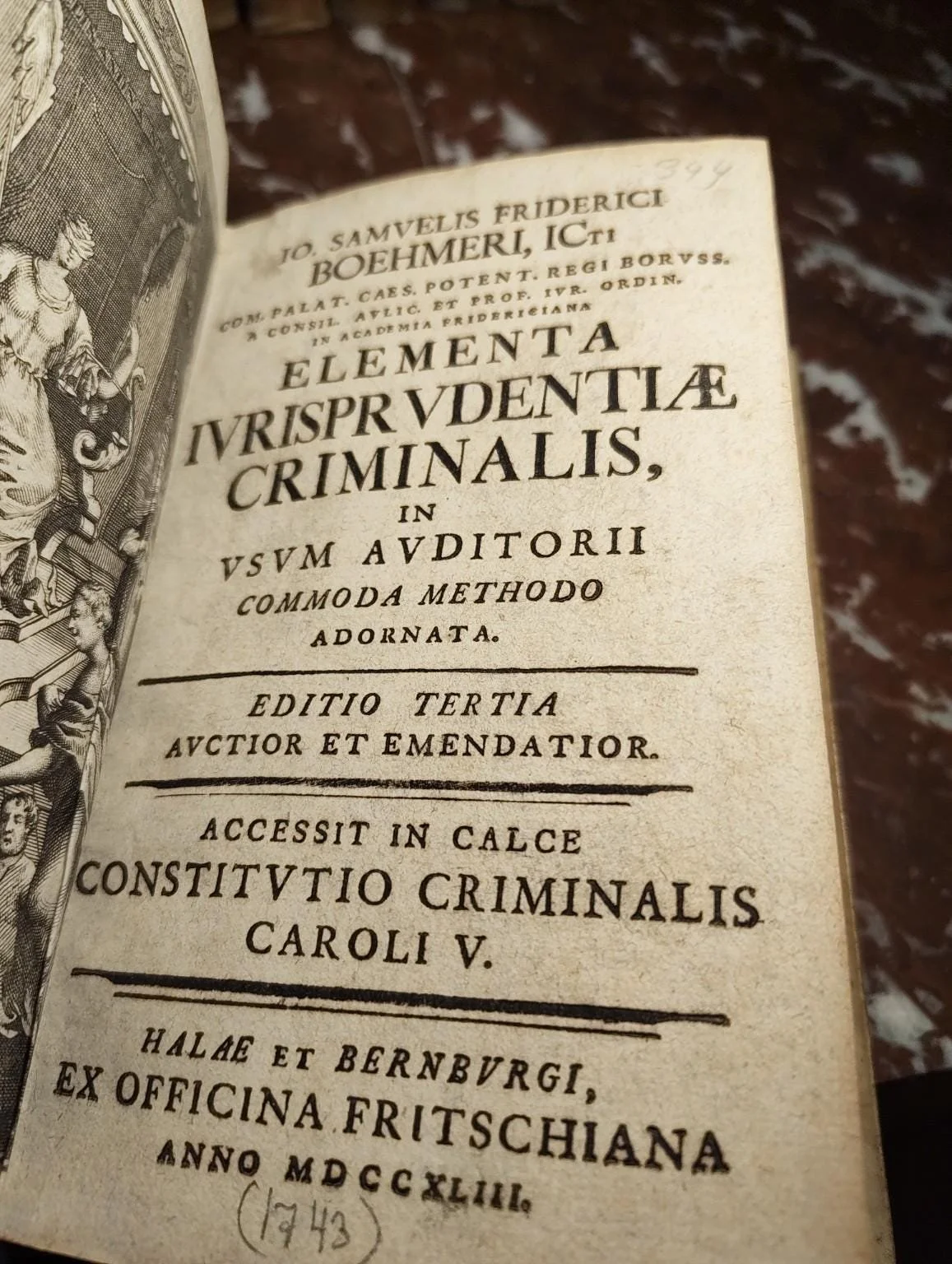 Image 1 of 10
Image 1 of 10

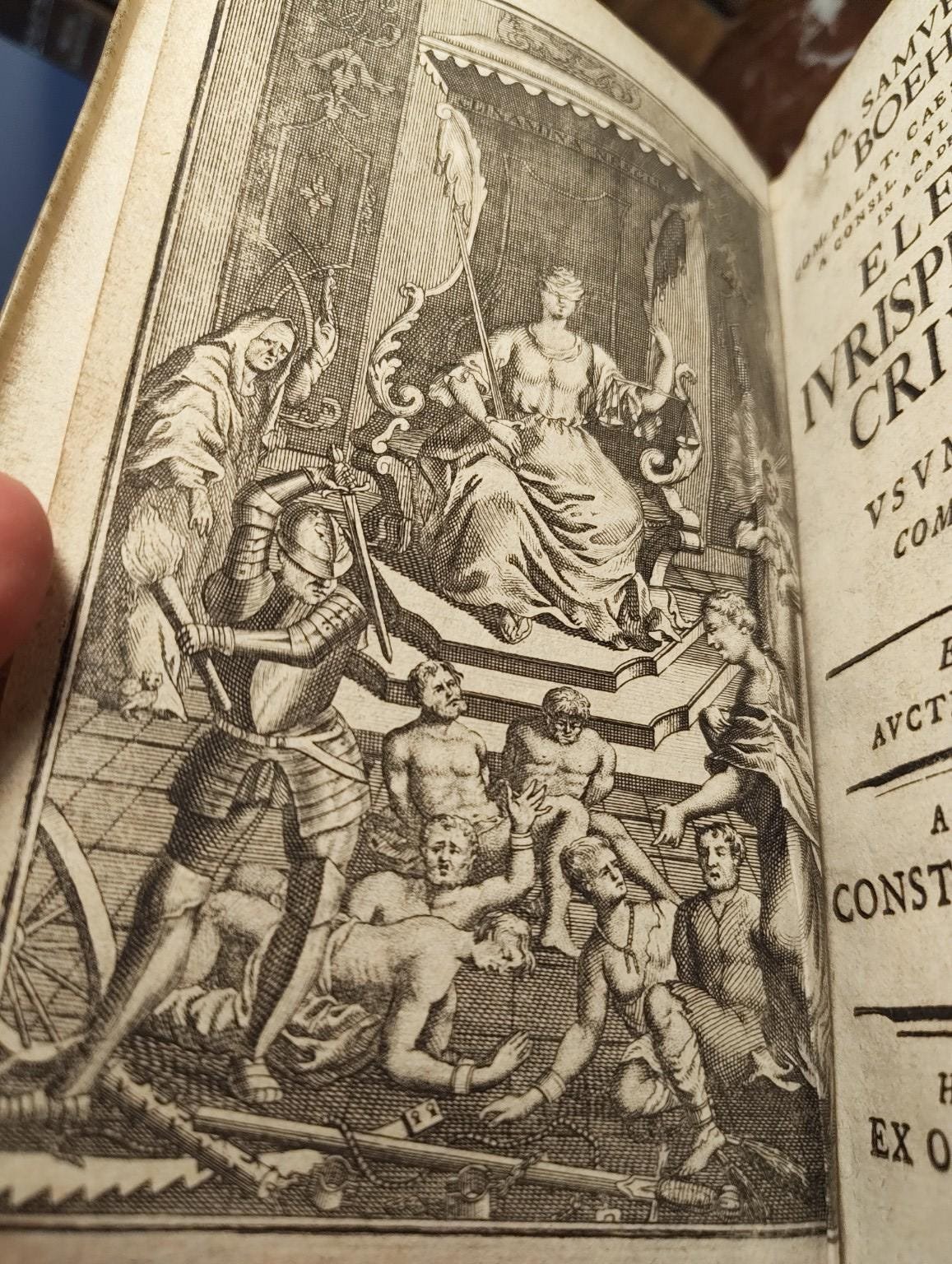 Image 2 of 10
Image 2 of 10

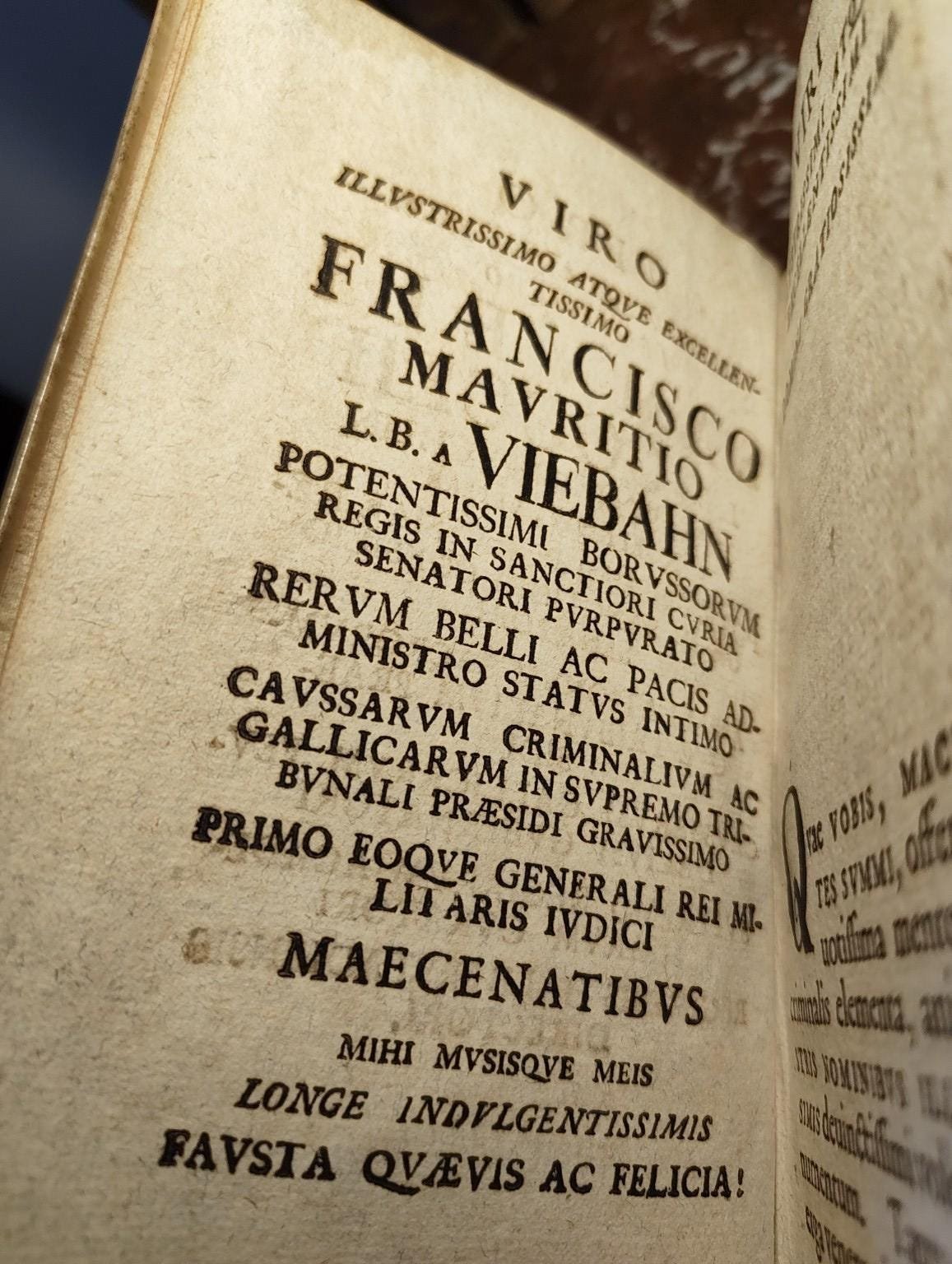 Image 3 of 10
Image 3 of 10

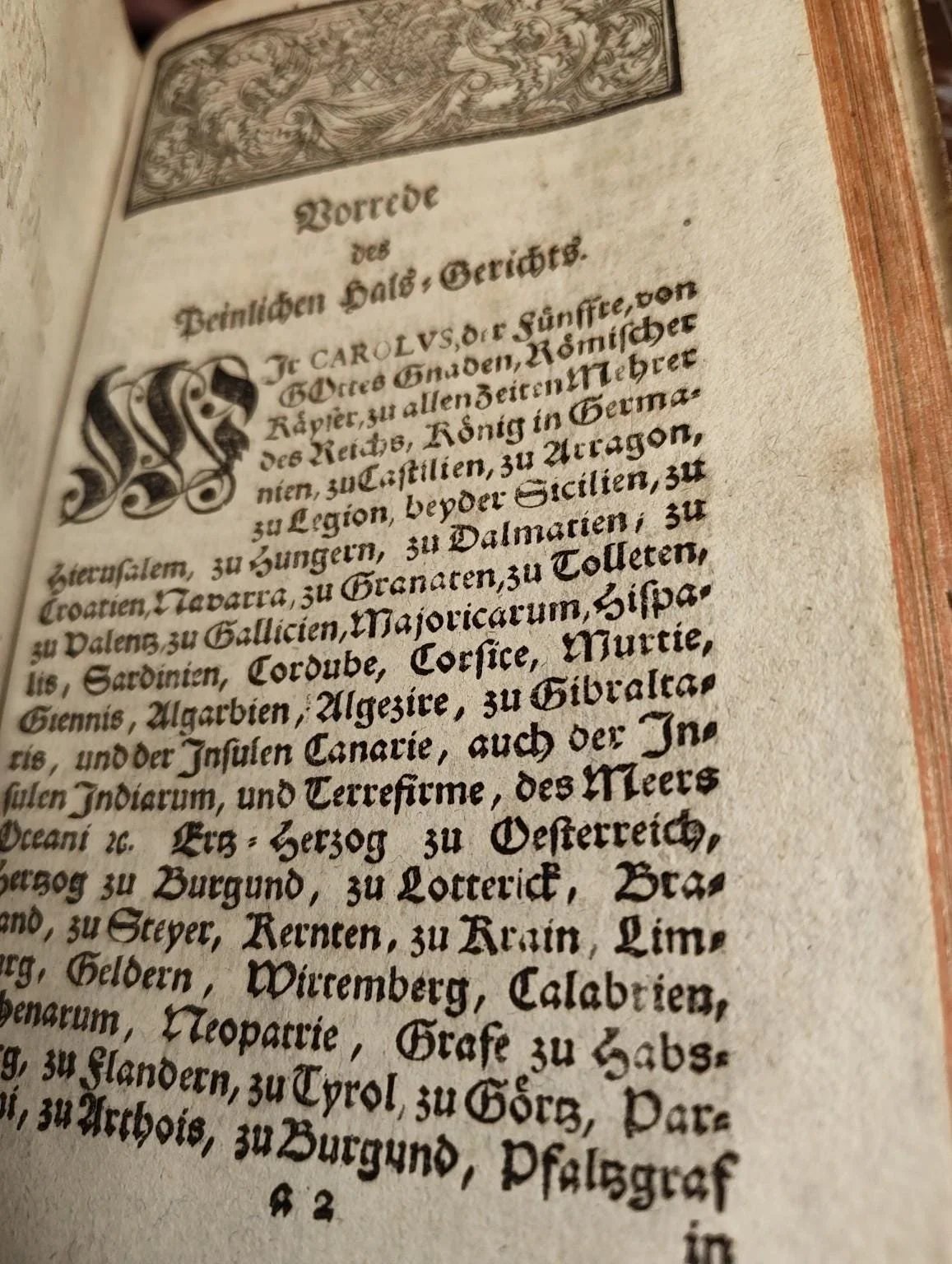 Image 4 of 10
Image 4 of 10

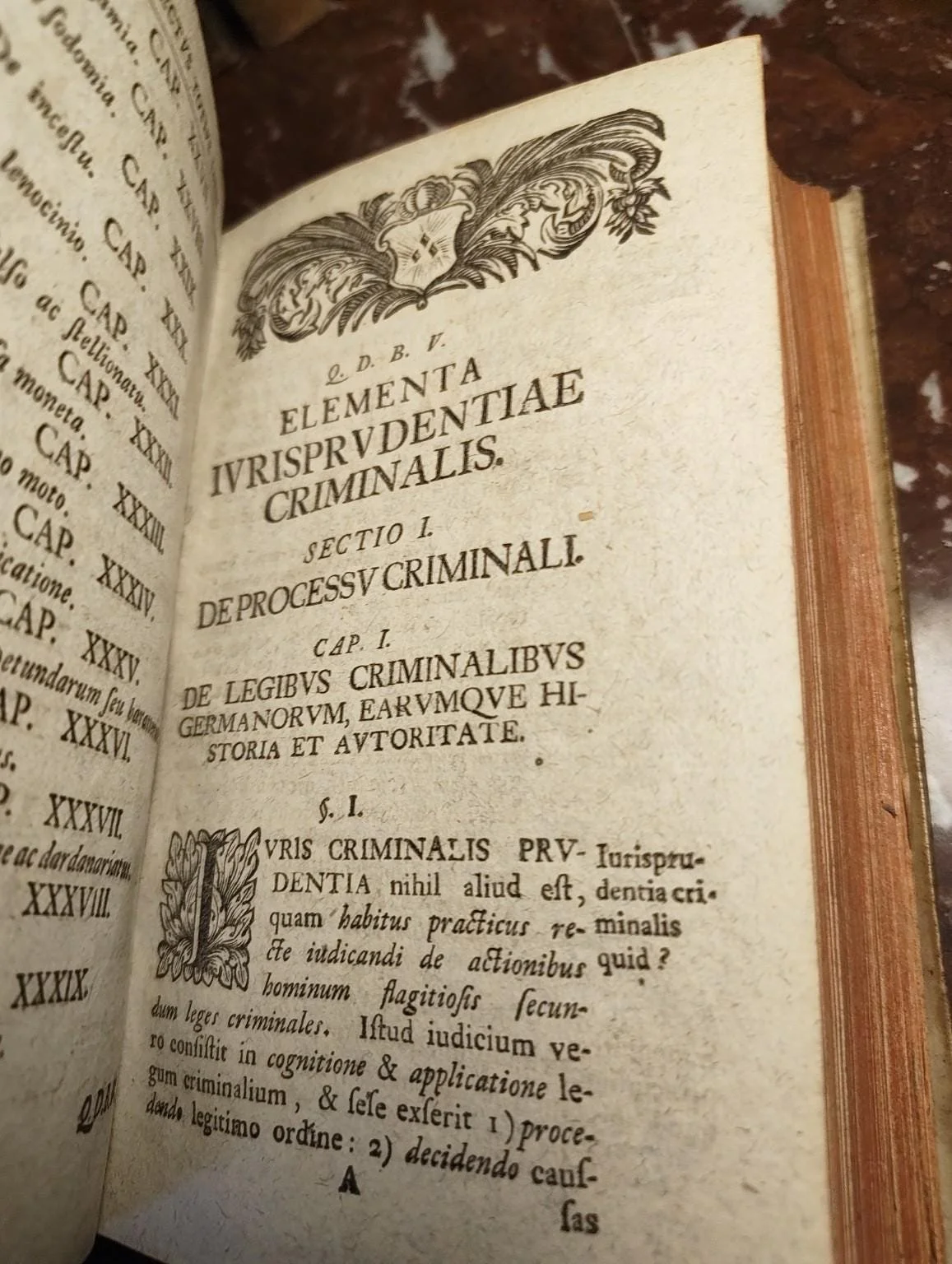 Image 5 of 10
Image 5 of 10

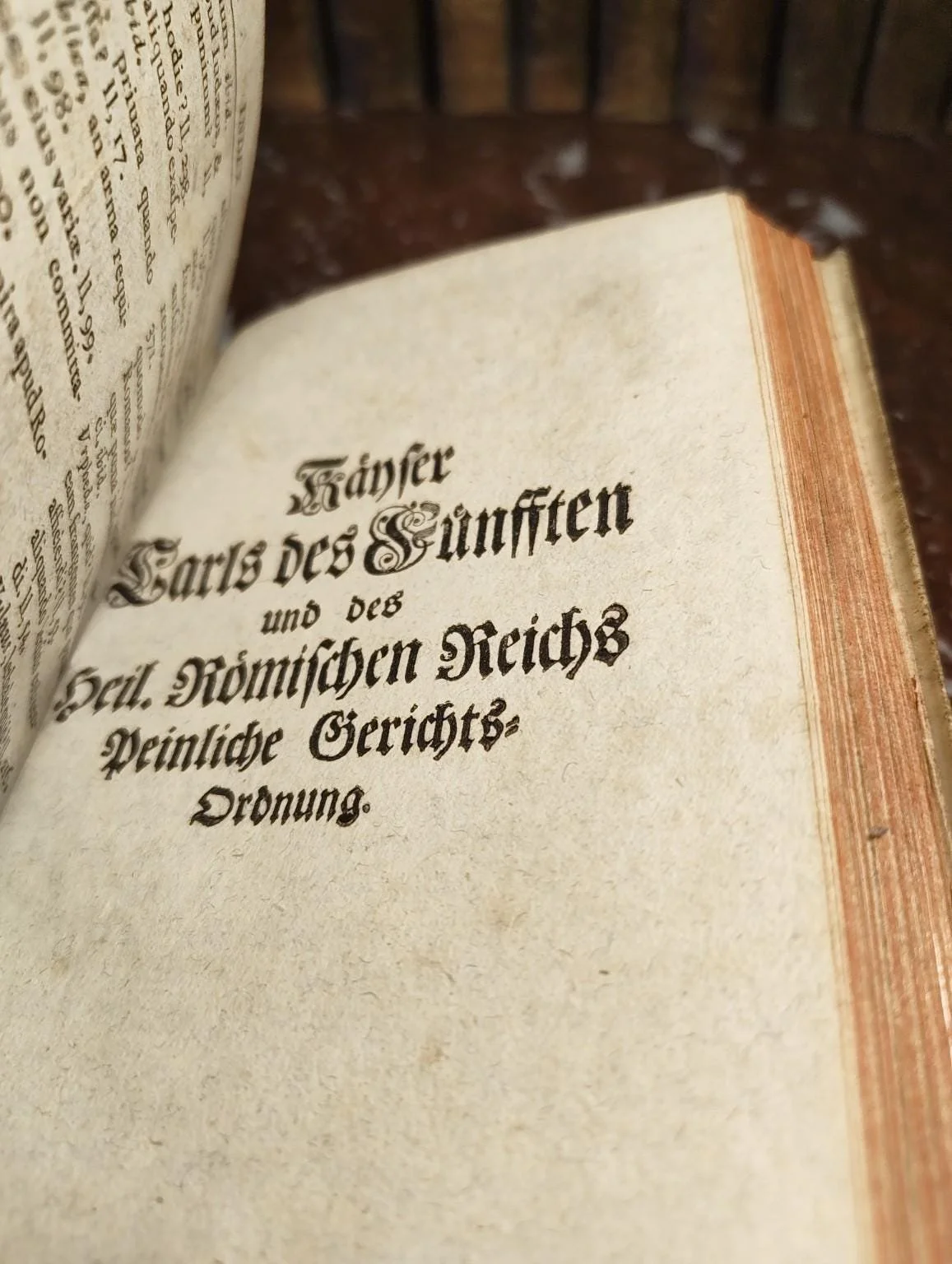 Image 6 of 10
Image 6 of 10

 Image 7 of 10
Image 7 of 10

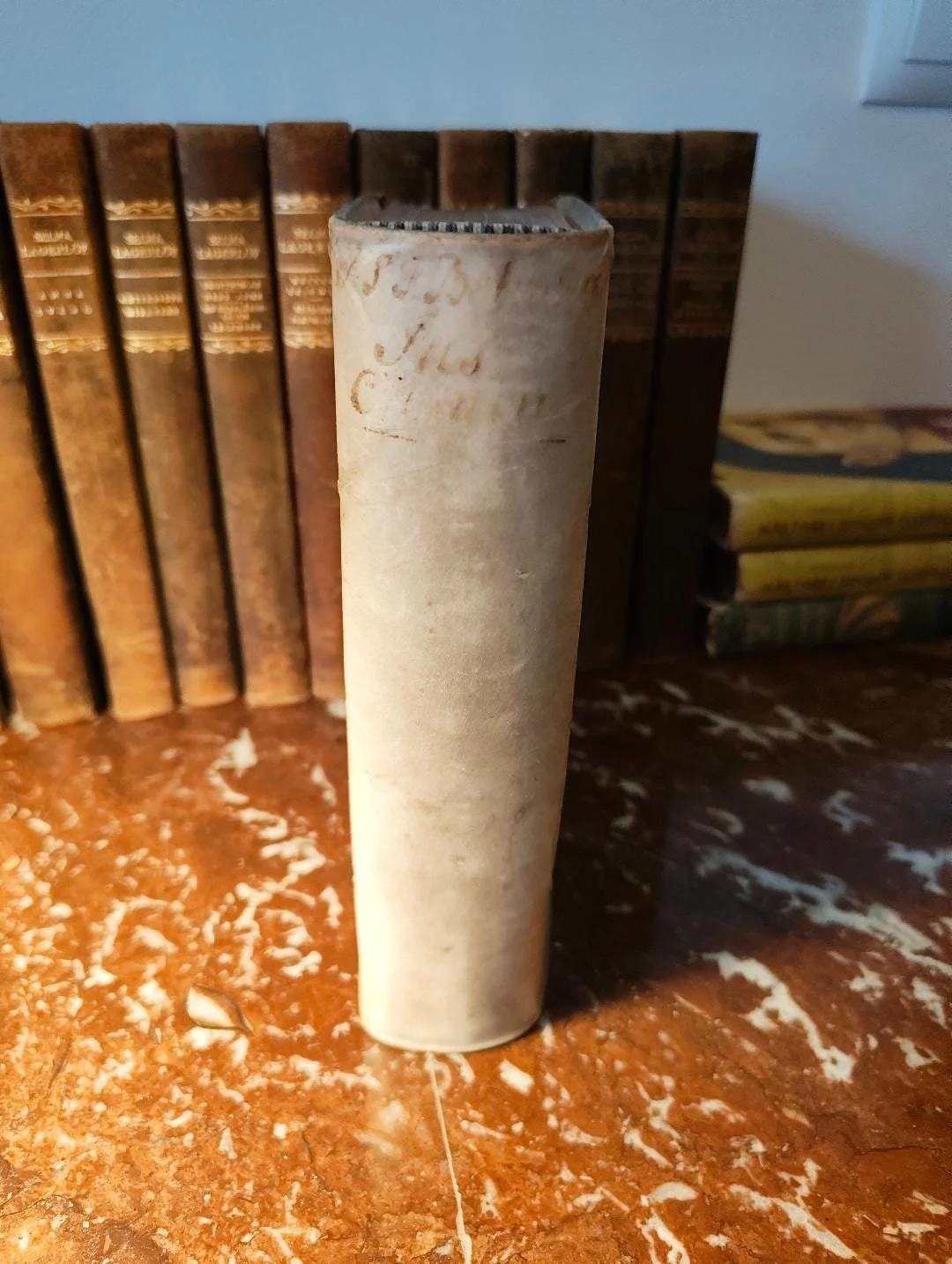 Image 8 of 10
Image 8 of 10

 Image 9 of 10
Image 9 of 10

 Image 10 of 10
Image 10 of 10











Elementa Iurisprudentiae Criminalis. J. S. F. Boehmer
A central legal text of the German Enlightenment, uniting early modern criminal theory with the foundational penal code of the Holy Roman Empire
This 1743 third edition of Elementa Iurisprudentiae Criminalis by Johann Samuel Friedrich Boehmer represents one of the most influential criminal law textbooks of the German Enlightenment. Printed in Halle, the volume combines Boehmer’s systematic treatment of criminal jurisprudence with the full text of the Constitutio Criminalis Carolina, the landmark penal code issued under Emperor Charles V in 1532.
Boehmer’s work served as a bridge between early modern legal tradition and the emerging rationalism of eighteenth century scholarship. His interpretation of the Carolina code, presented in both Latin and German, reflects a period in which academic jurists sought to clarify procedure, codify principles of evidence, and reconcile inherited legal structures with Enlightenment concepts of proportionality and justice. As a teaching text, the book shaped generations of jurists across the German lands and remained a known authority in discussions of criminal reform.
The volume opens with an engraved frontispiece and is preserved in its original eighteenth century binding, which remains in good condition with visible signs of responsible use. The pages are clean and complete, printed in a crisp Latin and German typeface that exemplifies mid eighteenth century Halle production. The only noted flaw is a torn lower edge on page 165, a minor blemish that does not affect the text.
As an artefact, the book stands at the intersection of legal history, Enlightenment pedagogy, and the transmission of early modern criminal theory. It presents the Carolina code not as an isolated document but as part of a living academic tradition that sought to understand and refine the administration of justice within the Holy Roman Empire.
This is an appealing and well preserved copy for collectors of legal history, scholars of early modern jurisprudence, and libraries that seek representative examples of eighteenth century continental law.
A central legal text of the German Enlightenment, uniting early modern criminal theory with the foundational penal code of the Holy Roman Empire
This 1743 third edition of Elementa Iurisprudentiae Criminalis by Johann Samuel Friedrich Boehmer represents one of the most influential criminal law textbooks of the German Enlightenment. Printed in Halle, the volume combines Boehmer’s systematic treatment of criminal jurisprudence with the full text of the Constitutio Criminalis Carolina, the landmark penal code issued under Emperor Charles V in 1532.
Boehmer’s work served as a bridge between early modern legal tradition and the emerging rationalism of eighteenth century scholarship. His interpretation of the Carolina code, presented in both Latin and German, reflects a period in which academic jurists sought to clarify procedure, codify principles of evidence, and reconcile inherited legal structures with Enlightenment concepts of proportionality and justice. As a teaching text, the book shaped generations of jurists across the German lands and remained a known authority in discussions of criminal reform.
The volume opens with an engraved frontispiece and is preserved in its original eighteenth century binding, which remains in good condition with visible signs of responsible use. The pages are clean and complete, printed in a crisp Latin and German typeface that exemplifies mid eighteenth century Halle production. The only noted flaw is a torn lower edge on page 165, a minor blemish that does not affect the text.
As an artefact, the book stands at the intersection of legal history, Enlightenment pedagogy, and the transmission of early modern criminal theory. It presents the Carolina code not as an isolated document but as part of a living academic tradition that sought to understand and refine the administration of justice within the Holy Roman Empire.
This is an appealing and well preserved copy for collectors of legal history, scholars of early modern jurisprudence, and libraries that seek representative examples of eighteenth century continental law.

